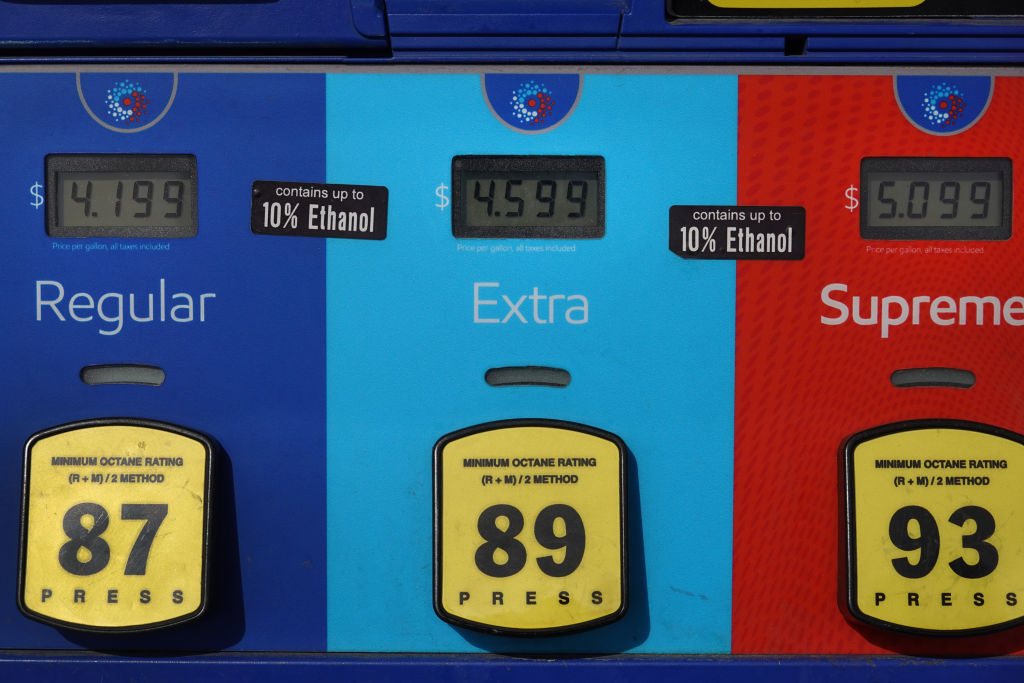Just over a week into Russia’s invasion of Ukraine, the impacts of the conflict are starting to be seen at the gas pump.
According to AAA, the national price for a gallon of gas is $3.83 as of Friday afternoon, which is up 26 cents from a week ago.
California had the highest average, topping $5 per gallon. Meanwhile, the average price in Washington, Oregon, Alaska, Hawaii, Nevada, New York, Illinois, and Pennsylvania was above $4 per gallon.
Arkansas had the lowest average at $3.44 per gallon.
Patrick De Haan, head of petroleum analysis at GasBuddy, predicted that the average price for a gallon of gas in some cities could hit $5 “in the next couple of weeks.”
De Haan previously predicted that gas prices, which hit a seven-year high last year, could continue to rise in 2022 and hit $4 per gallon, as IJR reported.
He told The New York Post that the “bulk of what we’re seeing still has to do with the Russia-Ukraine situation,” and predicted that if the conflict escalates, “The impact could be more severe.”
Additionally, De Haan noted that while the U.S. has not placed sanctions on Russia’s energy sector, “Previous sanctions on Russia’s banking and shipping industries [are] essentially putting a chokehold on Russian oil exports, which have plummeted.”
“Certainly those existing sanctions are having a significant impact, and that’s why oil [has] continued to go up in recent days,” he added.
President Joe Biden previously predicted that a conflict in Ukraine could lead to higher prices but vowed to take steps to alleviate price increases. Earlier this week, the White House announced Biden would release 30 million barrels from the Strategic Petroleum Reserve to “protect American businesses and consumers, including from rising prices at the pump.”
White House Press Secretary Jen Psaki said in a statement, “We are prepared to use every tool available to us to limit disruption to global energy supply as a result of President Putin’s actions. We will also continue our efforts to accelerate diversification of energy supplies away from Russia and to secure the world from Moscow’s weaponization of oil and gas.”

























 Continue with Google
Continue with Google